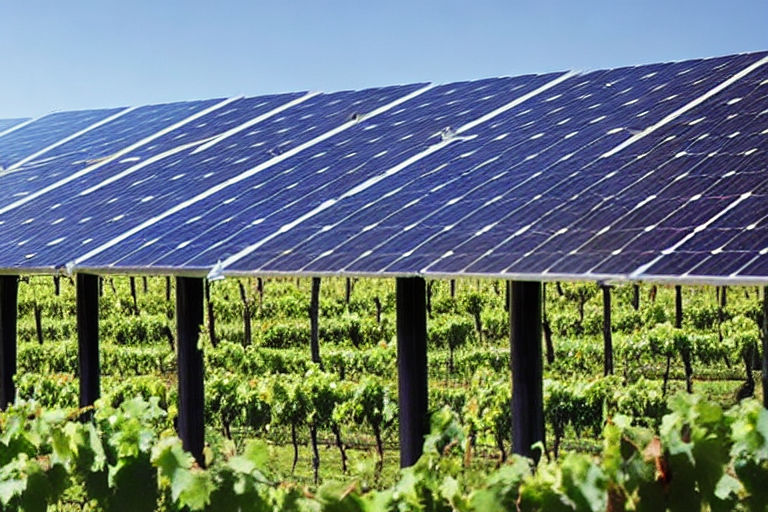Renewable Energy Sources in the Wine Industry
The wine industry has long been associated with the luxury lifestyle, but the changes and challenges in recent years have led to a profound transformation in the way vineyards are run. The demand for environmentally-friendly practices in the wine industry has increased dramatically, and many vineyards are now implementing renewable energy sources to reduce their carbon footprint and environmental impact.
Why Renewable Energy?
Renewable energy sources are a sustainable power supply option that uses natural resources, such as sunlight, wind, and water, that are replenished naturally. These sources are a cleaner, safer and more sustainable option than traditional sources like fossil fuels, which generate harmful greenhouse gas emissions.
The wine industry has a unique opportunity to make a significant contribution to sustainability efforts by incorporating renewable energy initiatives into their operations. By adopting renewable energy, wine producers can reduce their carbon emissions, lower overhead costs and improve brand reputation by appealing to eco-conscious consumers.
Types of Renewable Energy Sources in the Wine Production Process
There are several energy sources that wineries can tap into to achieve clean energy production. Here are some examples:
- Solar power: Many wine producers are installing solar panels to capture the abundant sunlight in vineyard areas. Solar technology has rapidly evolved in recent years, and many solar panel installations have become more efficient and affordable. Installing solar panels on the rooftops of winery buildings or on ground-mounted structures can help vineyards source electricity, store energy, and sell excess power back to the grid.
- Wind power: Wind turbines can be used to generate clean, renewable energy, especially in areas with consistent, strong winds. Although wind turbines can be relatively expensive to install, they offer reliable energy production for decades and have zero emissions.
- Geothermal energy: Geothermal energy harnesses the heat of the earth to produce energy. Wine makers can tap into the naturally occurring heat underground to power winery production processes like refrigeration, heating and cooling. A geothermal system requires a borehole and a heat pump, which can both be relatively expensive to set up. However, the ongoing savings from reduced energy bills can provide long-term economic benefits.
- Biomass: Biomass energy is produced from organic matter, such as grape waste, that is burnt to create energy. Rather than disposing of grape waste, some vineyards use it to generate energy to power their facilities. This can be an efficient way of dealing with waste while simultaneously reducing energy bills.
Benefits of Renewable Energy in the Wine Industry
The wine industry can realize significant benefits from renewable energy sources, including:
- Lowering energy costs: Renewable energy sources can help vineyards to reduce their energy bills, resulting in long-term cost savings. Additionally, as renewable energy continues to become more affordable, wine producers can take advantage of incentive programs and tax credits to help offset the costs of transitioning to renewable energy sources.
- Reducing carbon footprint: Fossil fuel usage produces harmful carbon emissions that damage the environment. Renewable energy sources like solar and wind power produce significantly less carbon and pollution than traditional fossil fuels, making them a greener choice.
- Improving brand reputation: Stakeholders and customers increasingly demand that companies make meaningful efforts toward sustainability. The wine industry can undergo a positive perception change by adopting and promoting environmentally friendly practices that resonate with customers who value sustainability.
- Creating a sustainable future: The wine industry has a responsibility to create a sustainable future. By adopting renewable energy sources, wineries contribute to a greener, cleaner planet, and ultimately leave behind a better world for future generations.
Conclusion
Renewable energy sources are becoming increasingly popular in the wine industry, and it's not hard to see why. Whether it's through solar power, wind power, geothermal energy, or biomass, wineries have the opportunity to reduce costs and carbon emissions, improve brand reputation and contribute to a sustainable future.
For wine producers willing take the leap into renewable energy, there are many resources available that provide guidance on incentive programs and tax credits, as well as assistance with the installation and maintenance of renewable energy infrastructure.



